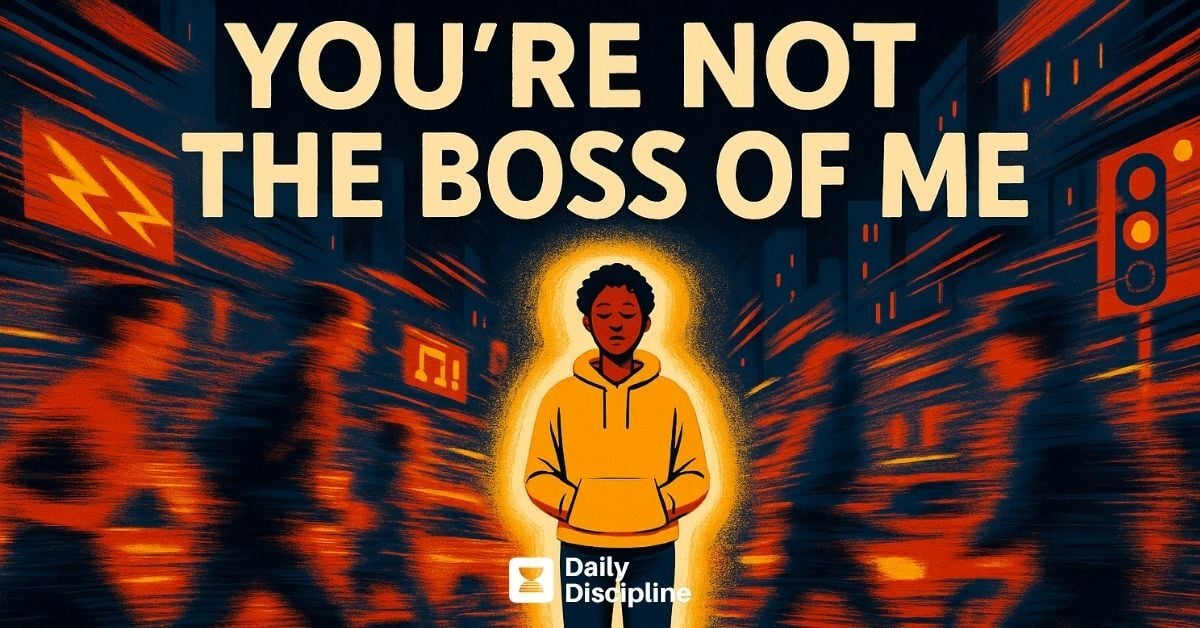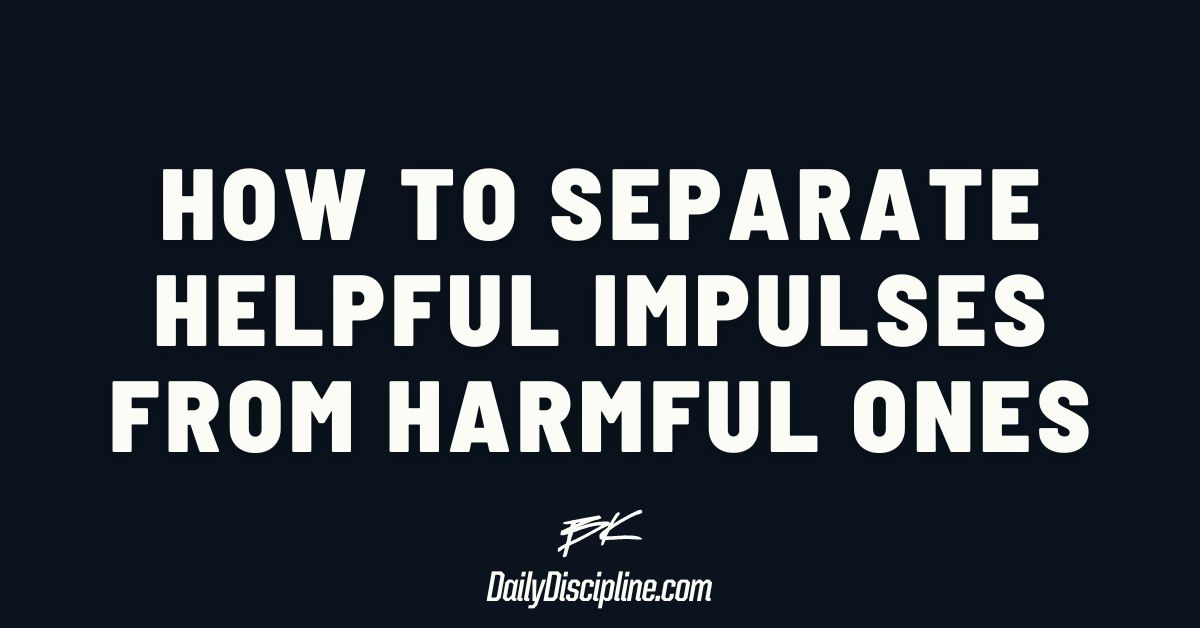Our impulses present two problems. But first, what exactly do I mean by "impulse"?
An impulse is a trigger to do something: speak, move, react, avoid, watch, leave, buy, sell, do, don't, etc. It's a sensation, usually via a sharp thought or strong feeling, that influences you to do or not do a particular thing.
Impulses aren't inherently good or bad. They are just part of your system. They play a role. It's not the impulse itself that's helpful or harmful. It's the content of the impulse, the intent of its influence, and the context of the situation.
The two big problems our impulses present:
Problem #1 is that we can't really control our impulses. Desire and aversion are a complex interplay of nature, nurture, choices, and habitual patterns, sometimes outside our conscious awareness. Through disciplined living, we can affect some of the impulses we feel over the long term but have little to no command over the urges we feel in a given moment or day.
Problem #2 is that we have difficulty discerning when to trust our impulses vs. when to deny them. Since we can't control the impulses we feel, we're a mix of disciplined and undisciplined urges, leaving us unsure when to act on them vs. when to act differently than they suggest.
These two problems can lead us to three dangerous behavior patterns:
- Acting primarily on impulse.
- Ignoring all impulses.
- Losing trust in your ability to make good decisions.
Acting primarily on impulse is a well-documented path to disappointment or destruction. Ignoring all impulses lacks essential humanity, like empathy, spontaneity, or competitiveness, and is essentially impossible anyway. Losing trust in your ability to make good decisions leaves you with unjustified confidence, unwarranted fear, or frozen with indecision.
Three thoughts to launch your discipline on this topic of impulses:
- How many impulses do you suppress for any reason on any particular day?
- How often do you act on an impulse only to wish later that you hadn't?
- If you track 100% of your impulses, what % of them influence you in the direction of your best interest vs. what % influence you against your best interest?
The time is now. Do the work.


Share your thoughts